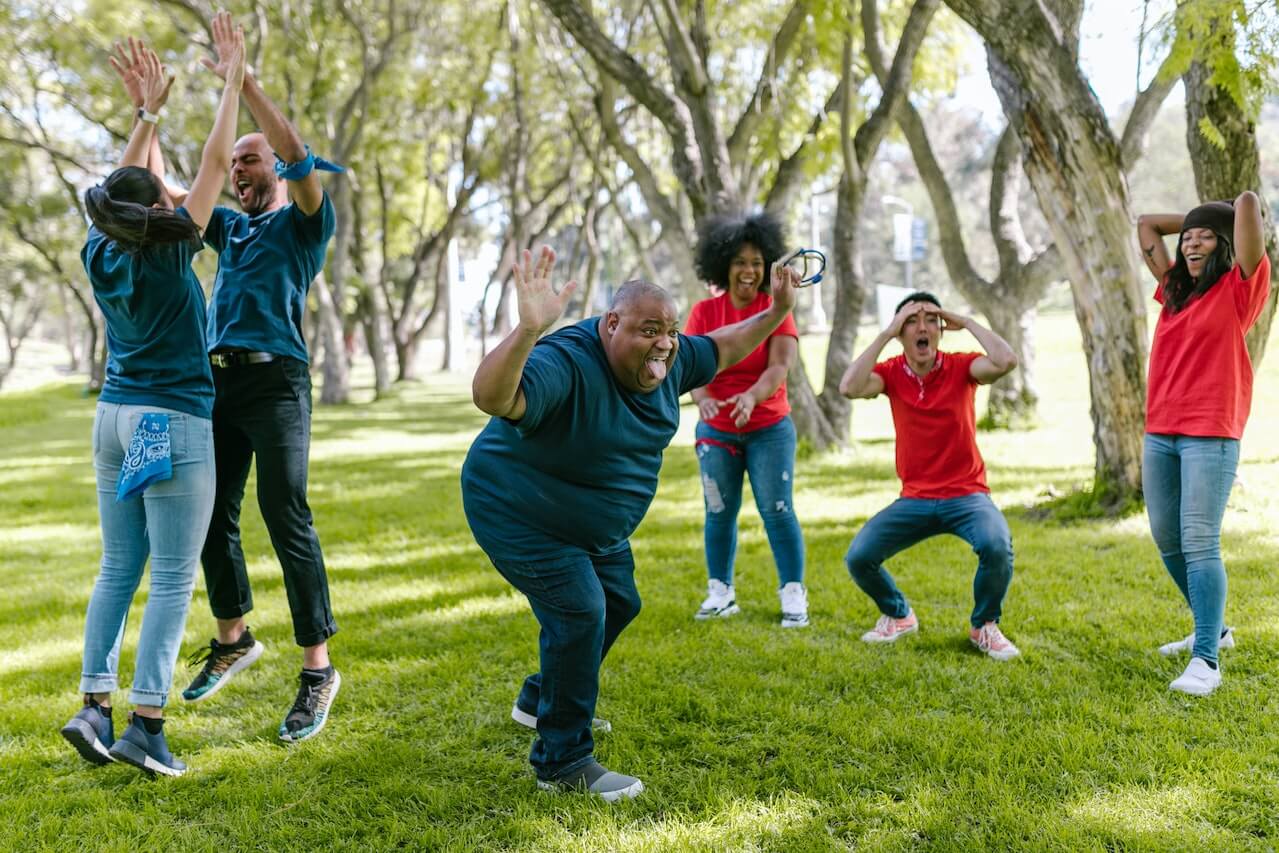Identifying Engaging Team Building Activities That Promote Problem-Solving Skills and Innovative Assuming Among Associates
In today's quickly advancing workplace, fostering problem-solving abilities and imaginative thinking via team-building tasks has actually come to be crucial for organizational success. Exploring these inquiries can brighten paths toward a more vibrant group atmosphere.
Comprehending Group Building Advantages

In addition, team structure serves to strengthen social relationships amongst coworkers, which is crucial for reliable interaction. When team participants create trust and rapport, they are more probable to share details honestly and look for aid when needed. This synergy not just improves individual performance yet additionally boosts overall team performance.
In addition, group structure tasks can significantly boost morale and inspiration. Workers who join appealing experiences feel more attached to their organization and are most likely to demonstrate raised commitment and productivity. A determined labor force is better outfitted to take on issues creatively and effectively.
Eventually, comprehending the benefits of team structure is essential for organizations intending to enhance analytic skills. By buying these activities, organizations can create a more natural, cutting-edge, and durable labor force that is prepared to meet the needs of a vibrant organization environment.
Features of Reliable Tasks
Effective team building tasks share numerous crucial characteristics that boost their effectiveness in developing analytic abilities. First of all, they need to foster cooperation among team members, encouraging open interaction and collective thinking. This joint atmosphere enables people to leverage varied viewpoints, which is necessary for innovative problem-solving.
Second of all, reliable activities are created to be difficult yet possible, pressing individuals to assume critically and artistically. These tasks should require groups to browse challenges, examine information, and establish strategic remedies within a defined duration.
One more essential attribute is the component of representation (Orlando team building activities). Activities that include debriefing sessions make it possible for individuals to evaluate their approaches, learn from successes and failures, and use these insights to future difficulties
Furthermore, successful activities usually integrate real-world circumstances appropriate to the team's job context. This not only enhances engagement however also guarantees that abilities developed during the activity are transferable to day-to-day jobs.
Creative Problem-Solving Exercises
Imaginative analytic workouts play a critical role in enhancing a group's ability to tackle complicated difficulties. These tasks cultivate an environment where team members can think outside the box, encouraging cutting-edge solutions via cooperation and varied perspectives.
One effective workout is the "Reverse Thinking" technique, where participants recognize prospective troubles or obstacles connected to a job. By concentrating on what special info can fail, groups can create strategies to reduce these problems and boost creativity. Another important exercise is the "Mind Mapping" strategy, which permits team members to aesthetically arrange their thoughts and ideas around a main motif, promoting links and insights that may not emerge with conventional thinking.

Additionally, the "6 Assuming Hats" technique encourages people to technique troubles from various point of views, such as psychological, logical, and imaginative viewpoints. This organized technique helps groups check out a range of angles, resulting in comprehensive services.
Including these imaginative analytic workouts into team-building activities not only enhances cognitive flexibility but likewise strengthens social partnerships, eventually adding to a much more cohesive and ingenious group dynamic. Such workouts are important for promoting a society of creative thinking and flexibility in the workplace.
Collaborative Challenges for Teams
Many collective difficulties can substantially improve a group's analytic capabilities while advertising unity and communication. These tasks need individuals to involve in cumulative reasoning, fostering a setting where varied point of views can be shared and valued.

Additionally, group scavenger pursues can be designed to integrate details analytic jobs that need calculated thinking and cooperation. By participating in such challenges, staff member learn to navigate disputes, develop trust, and appreciate each other's toughness. Orlando team building activities. Inevitably, joint obstacles contribute in cultivating a cohesive group dynamic that flourishes on development weblink and shared success
Determining Success and End Results
To efficiently determine the success of team-building tasks aimed at improving analytic skills, it is vital to establish clear metrics and preferred results. This procedure starts with specifying certain purposes, such as enhanced collaboration, enhanced creative thinking, and enhanced crucial reasoning among group participants. By articulating these objectives, organizations can customize activities that align with their vision.
Measurable measures, such as pre- and post-activity studies, can supply important insights into participants' understandings of their analytic capacities. Furthermore, tracking performance metrics-- such as task conclusion prices or the efficiency of solutions designed throughout Read Full Report team-building exercises-- can indicate the influence of these activities on overall efficiency.
Qualitative evaluations, consisting of individual feedback and empirical studies, can even more improve the analysis process. Helping with open discussions post-activity permits groups to assess their experiences, fostering an atmosphere of constant improvement.
Eventually, gauging success is not simply concerning evaluating immediate outcomes but likewise monitoring lasting behavioral changes within teams. By constantly examining the efficiency of team-building efforts, organizations can refine their strategy, guaranteeing ongoing advancement of analytical skills and innovative thinking capacities amongst coworkers.
Conclusion
To conclude, picking engaging team-building tasks that foster analytical abilities and creative thinking is vital for enhancing cooperation among colleagues. Effective exercises, such as Reverse Thinking and Retreat Area obstacles, not just boost essential reasoning yet likewise advertise a culture of imagination. By incorporating real-world circumstances and reflective debriefing sessions, groups can enhance interpersonal connections and grow a resistant workforce, eventually adding to collective success and enhanced organizational spirits.
Reliable group building cultivates partnership and boosts analytic capacities within a company.Additionally, team structure activities can significantly improve morale and inspiration.Successful group structure activities share several key characteristics that boost their effectiveness in developing analytical abilities. By focusing on what might go incorrect, groups can design approaches to minimize these problems and stimulate creative reasoning.In addition, group scavenger hunts can be developed to include certain analytic jobs that need strategic reasoning and partnership.